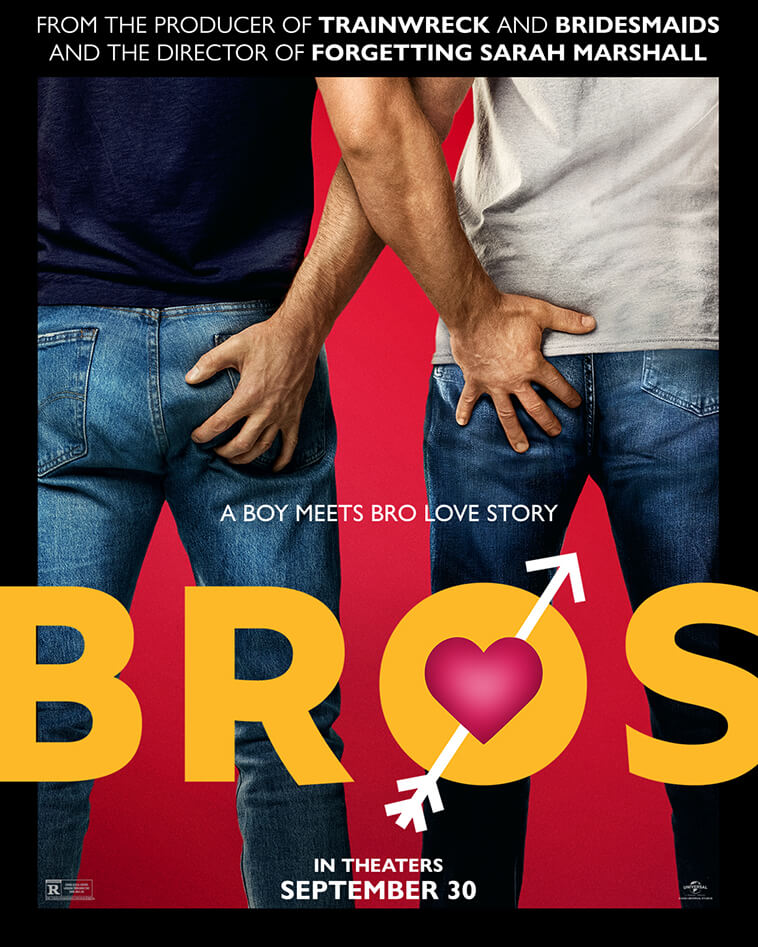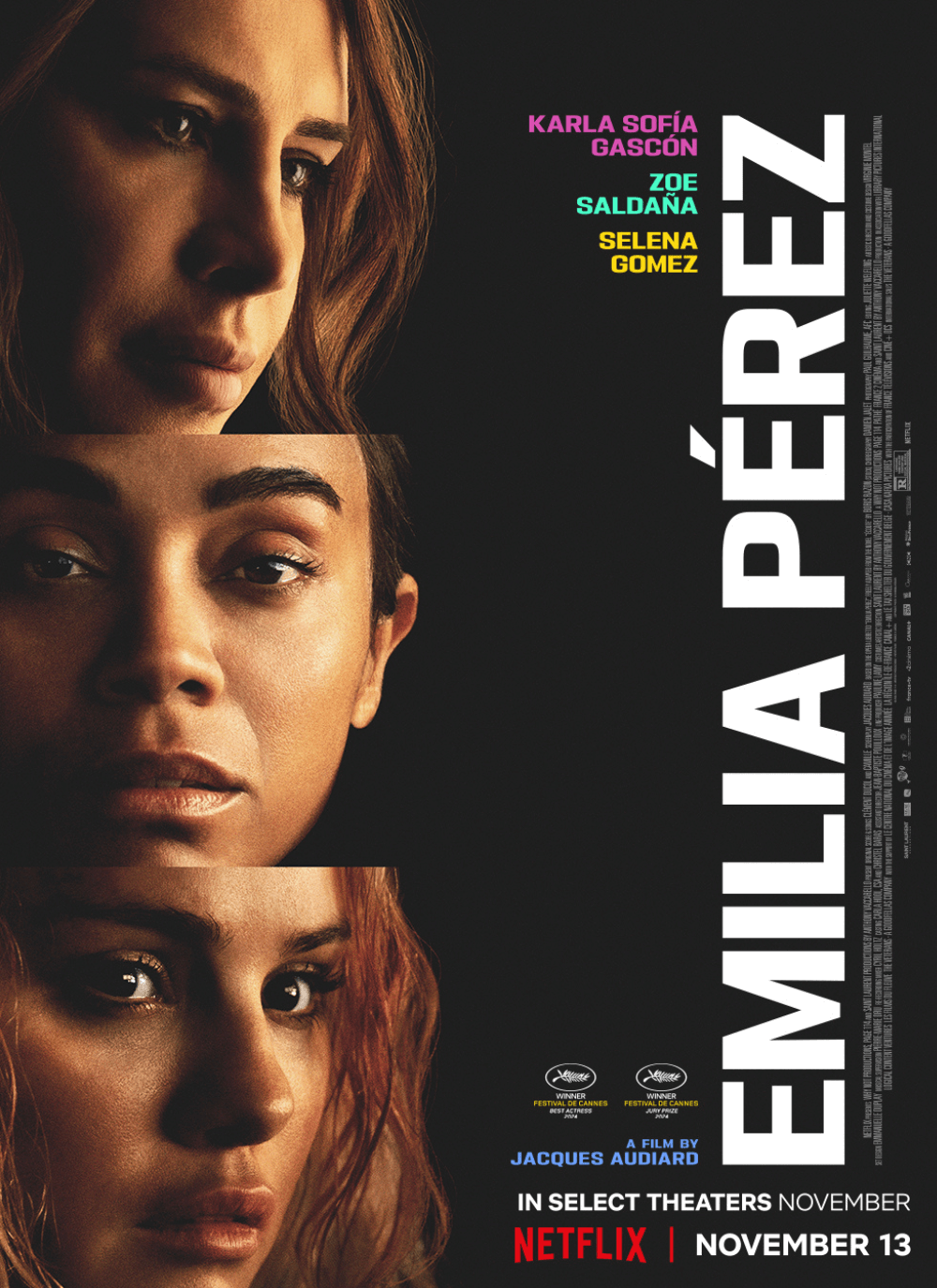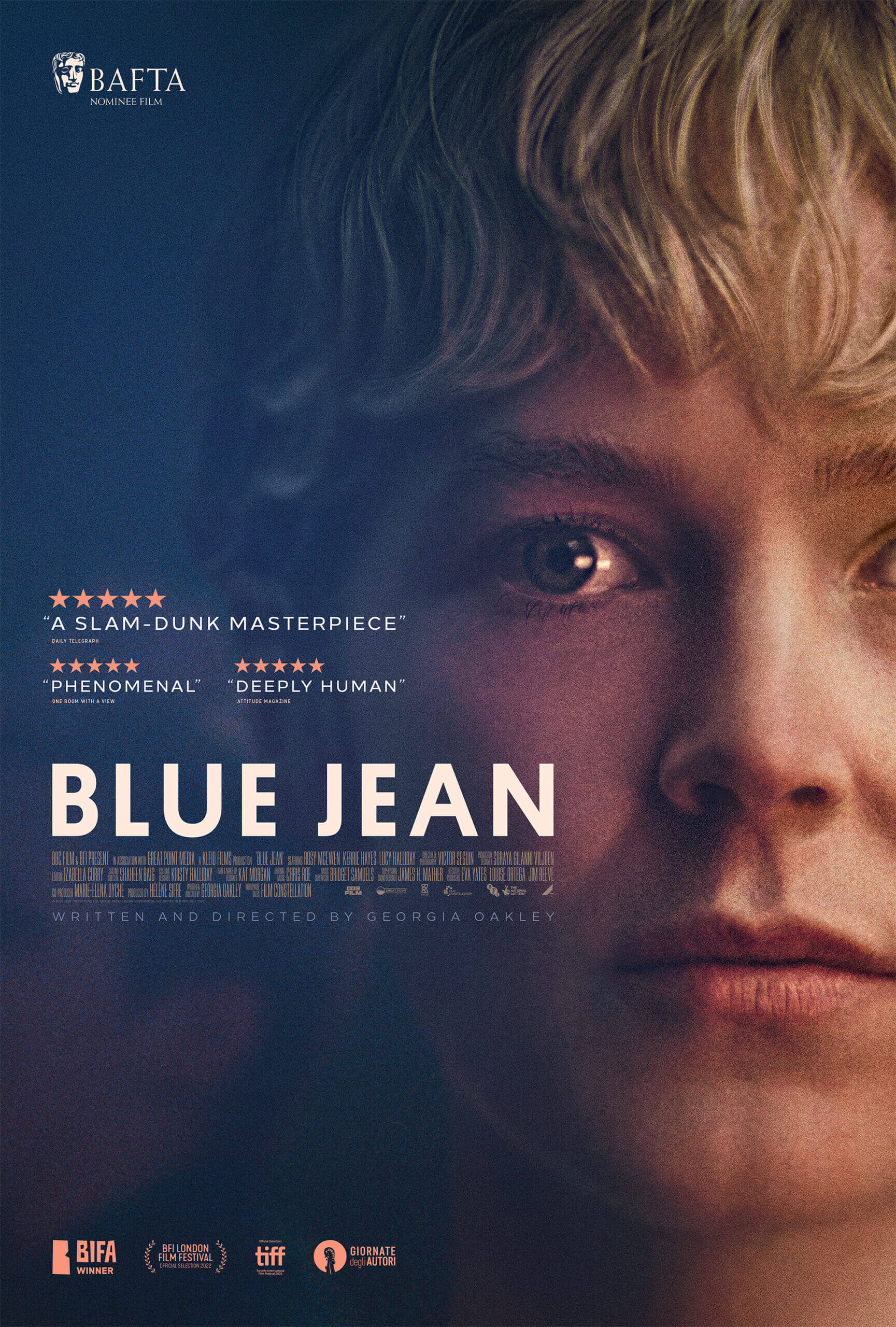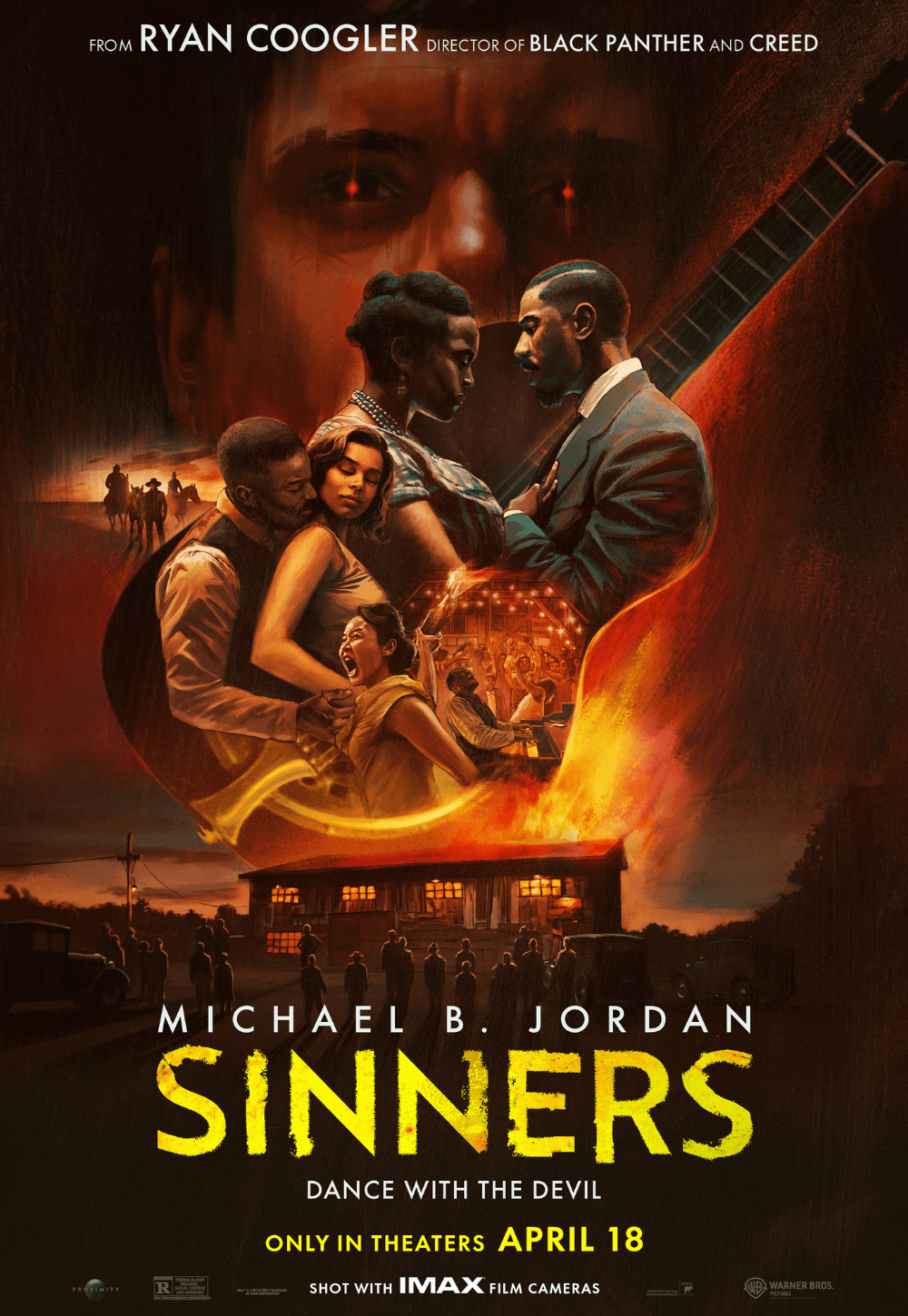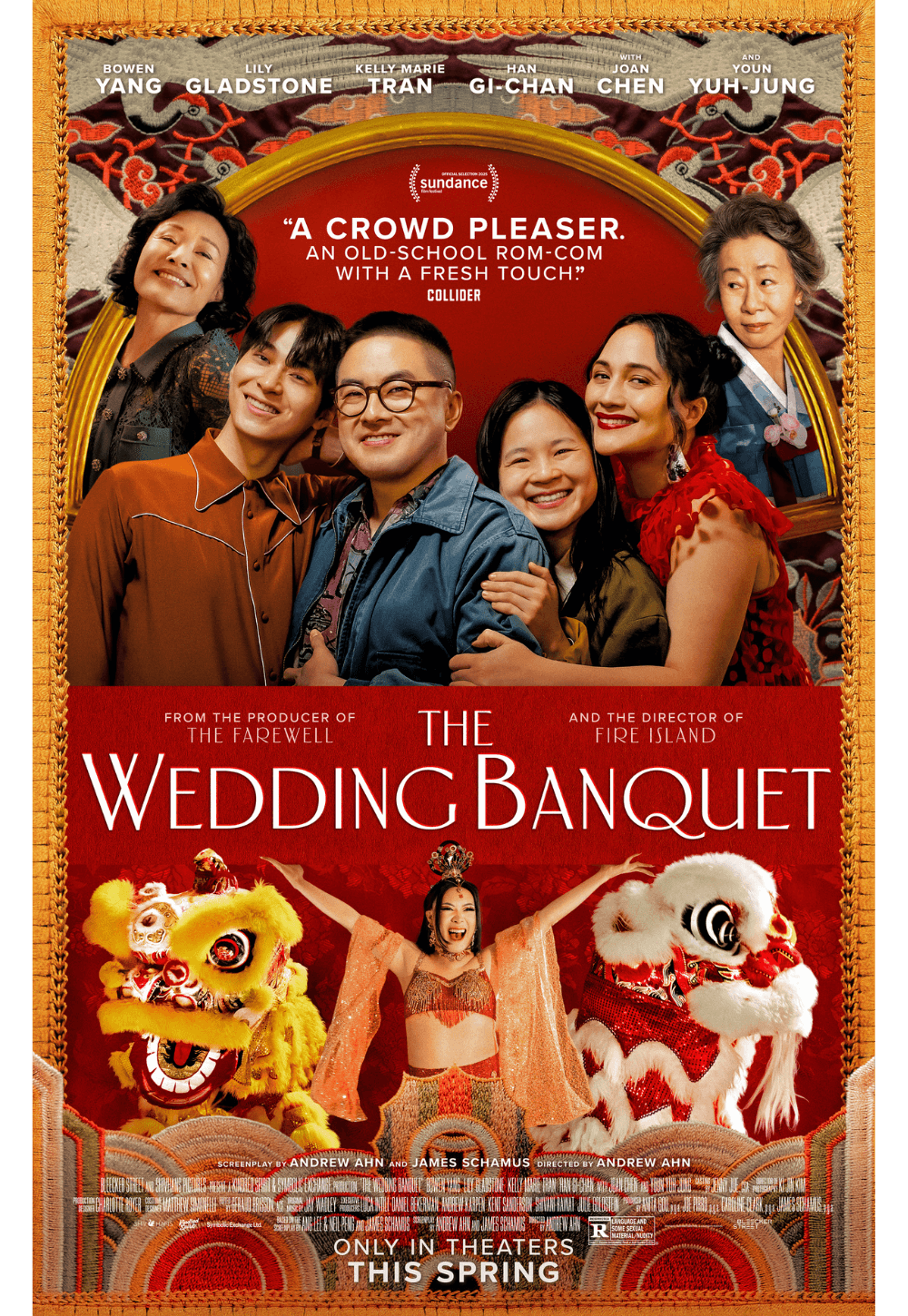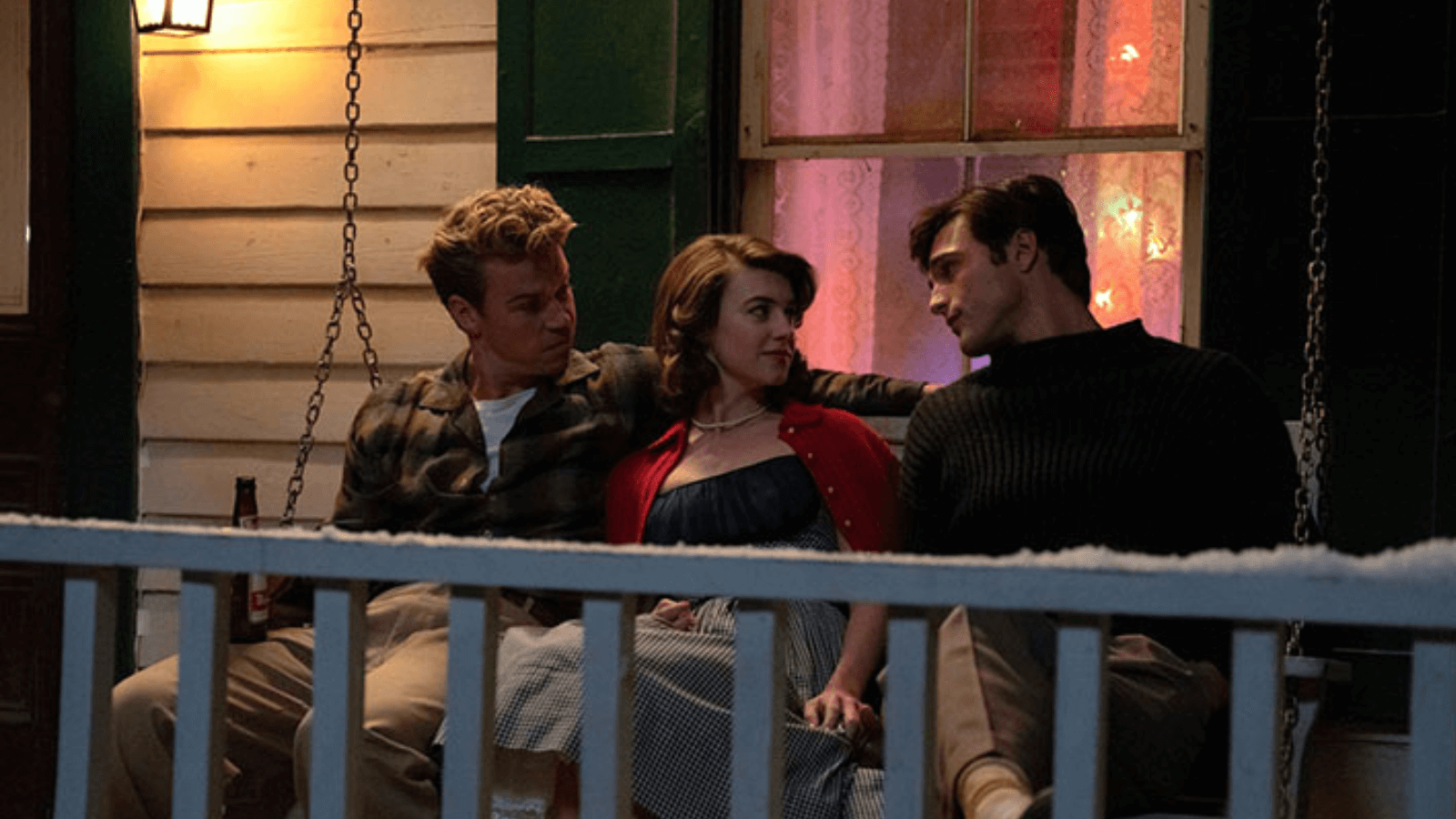
On Swift Horses
By Brian Eggert |
Note: Sony Pictures Classics will release On Swift Horses in theaters on April 25, 2025. This film was screened at the Minneapolis St. Paul International Film Festival.
A curious and somewhat random scene in On Swift Horses stood out to me. It’s the 1950s, and Muriel, played by Daisy Edgar-Jones, and her husband Lee (Will Poulter), drive to their ranch-style house in a new California development. Muriel sees a sign outside a house advertising olives for sale. She asks Lee to stop and starts a conversation with Sandra (Sasha Calle), the woman who lives there. Muriel admits she has never had an olive before. Sandra tells her the olive has a pit, and Muriel quickly discovers the pleasure of spitting the pit as far as she can. This moment tells us everything we need to know about Muriel: She’s willing to go out of her way to try something new and potentially pleasurable. Soon enough, she and Sandra have an affair. That’s new, too. This is a film about mid-twentieth-century characters who wander America searching for an identity and others who feel they cannot search because the illusion of the American Dream has consumed their every desire.
Adopting a meandering literary structure, On Swift Horses, based on Shannon Pufahl’s 2019 novel (which I have not read) is a thoughtful and pensive romance that reminded me of Brokeback Mountain (2005) or Carol (2015), two other queer dramas set in a similar period. It was directed by Daniel Minahan, an experienced helmer active for the last two decades of prestige television, including episodes of Deadwood, Game of Thrones, Six Feet Under, True Blood, and Homeland. Although not as experienced in film, Minahan directed the memorable reality TV satire Series 7: The Contenders (2001) and the belated (and somewhat inadequate) Deadwood: The Movie (2019). Pufahl’s book was adapted by Bryce Kass, who last earned a credit for 2018’s underrated Lizzie, about an intense, restrained love between Lizzie Borden and an Irish maid who buckled against an unfair patriarchal world. A similar dynamic plays out here, except without the axe murders.
On Swift Horses opens with Lee’s brother, Julius (Jacob Elordi), returning home to Kansas from the Korean War on a permanent discharge. He finds his brother and Muriel living together, with Lee having proposed several times and Muriel always refusing to answer. Julius seems to understand her, sizing her up instantly, even more than her eventual husband. The three make a pact to move to California together. Lee dreams of the three living the good life together in the Land of Milk and Honey. Muriel isn’t sure she wants to leave her mother’s home in Kansas, which she inherited. Her mother was the first woman in town to get a car, a college degree, and a divorce. What would she think of her daughter settling down into domestic drudgery?
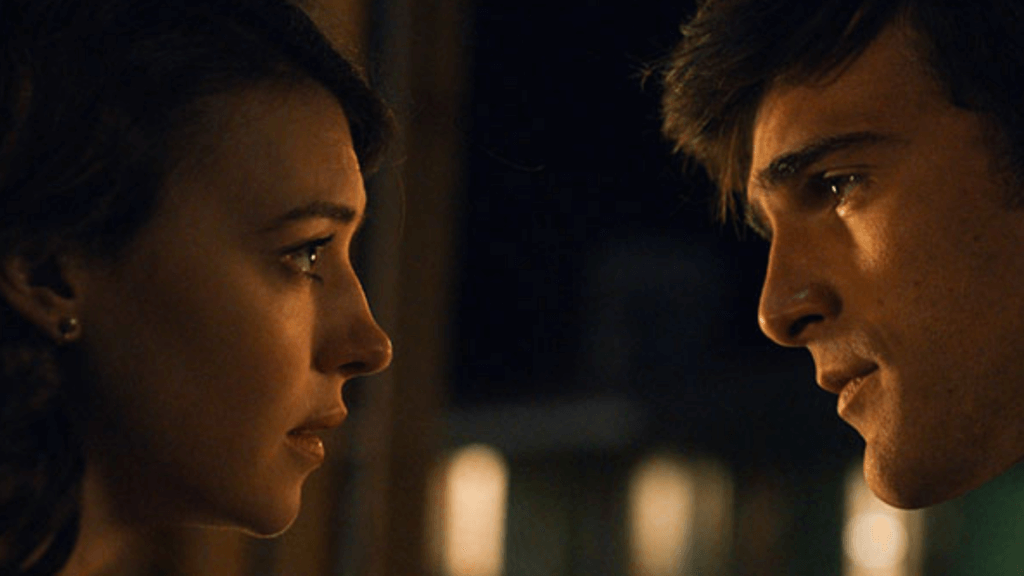
After some time passes, Muriel and Lee finally marry and move to California. Working as a server, Muriel overhears some local regulars from the racetrack talking about sure-thing bets, and she decides to place a bet herself—and wins big. Soon, they move into their cookie-cutter house, but Julius has not joined them. A gambler, he has taken a job spotting cheats in Las Vegas alongside Henry (Diego Calva), and the two soon become lovers. In California, Muriel meets a woman at the racetrack who sparks her interest in women. But she’s uncertain whether she’s just experimenting or discovering herself; the pressure of a conventional lifestyle with Lee weighs on her. Both Julius and Muriel face the threat of discovery from authorities who raid queer establishments and bigots who rough up outsiders. Their affairs have a persistent sense of danger, yet that makes them more urgent and passionate.
The production is classy and unfussy, with mysterious natural light beaming through the windows of interiors, sun-dappled California exteriors, and seedy neon lights flashing in the nascent age of Vegas nightlife. Minahan evokes a convincing sense of time and place, with Erin Magill’s production design capturing transportive details from the era. The film also boasts an excellent soundtrack of period-appropriate songs; however, they’re interrupted by an anachronistic song over the climactic scene that spoils the 1950s mood. To be sure, several details are unconvincing, from the cast’s modern sensibilities to their generic American accents (Edgar-Jones and Poulter are British; Elordi is Australian). However, the performers all manage to evoke genuine feelings from their roles. Poulter deserves special notice for his Johnny Suede-style hairdo, which suggests he’s hipper than Lee actually is.
On Swift Horses feels like a rarity today. How often does Hollywood make this sort of queer-themed prestige drama with major stars? Not very. Minahan’s direction could be deemed predictable and undaring; it’s self-consciously beautiful, and you can feel him and cinematographer Luc Montpellier reaching for iconic imagery. If the film doesn’t belong in the pantheon of all-time great romances, it’s at least full of compelling stars, deeply felt emotions, and heartbreaking turns. The three leads belong on a shortlist of today’s most promising young talent, and if they keep making solid efforts such as this one, their stars will continue to shine. All the same, it’s very obviously a twenty-first-century production trying to approximate a bygone era. It’s the kind of movie that left me appreciating the story and wanting to read Pufahl’s book for a fuller experience.
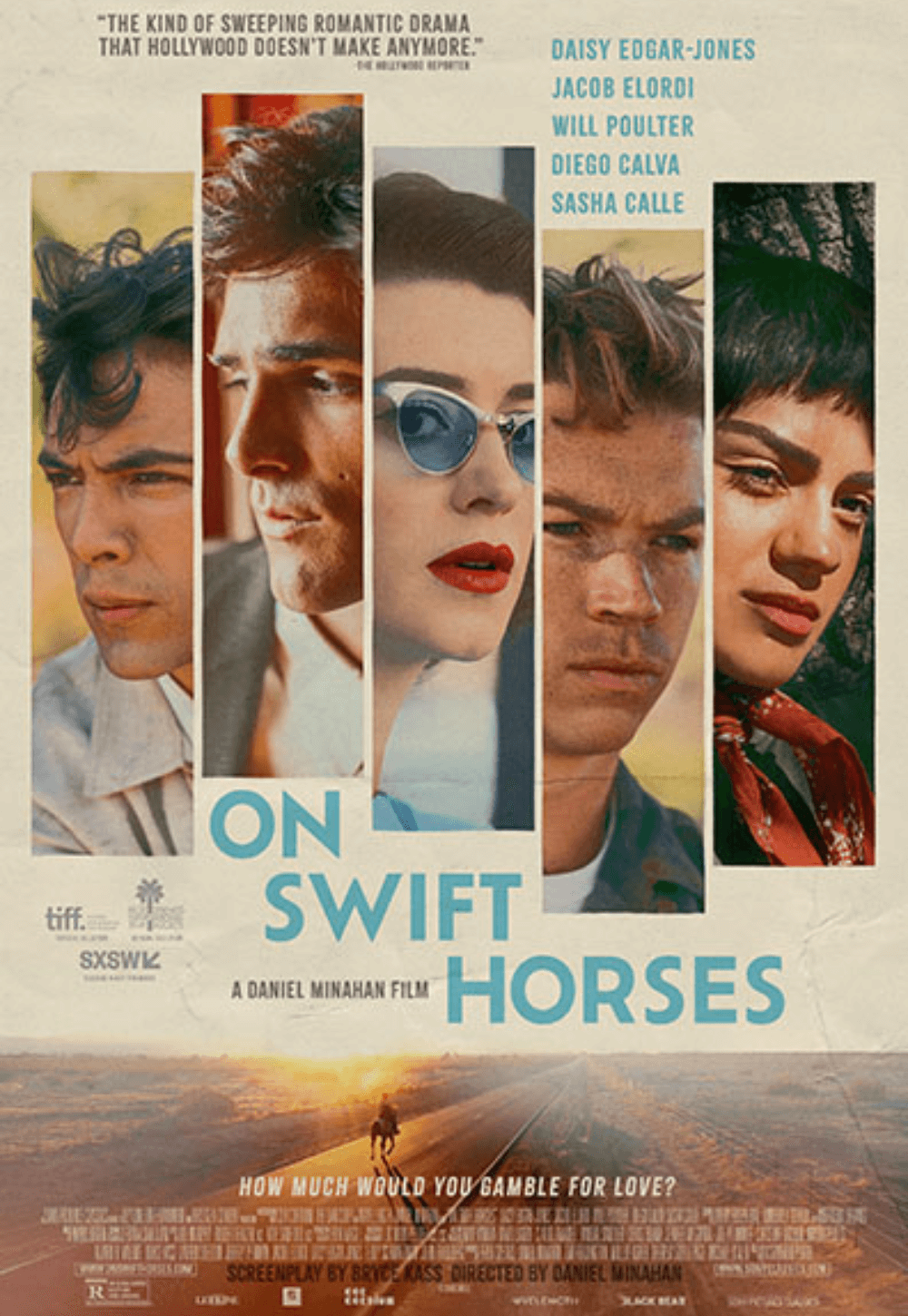
Consider Supporting Deep Focus Review
I hope you’re enjoying the independent film criticism on Deep Focus Review. Whether you’re a regular reader or just occasionally stop by, please consider supporting Deep Focus Review on Patreon or making a donation. Since 2007, my critical analysis and in-depth reviews have been free from outside influence. Becoming a Patron gives you access to exclusive reviews and essays before anyone else, and you’ll also be a member of a vibrant community of movie lovers. Plus, your contributions help me maintain the site, access research materials, and ensure Deep Focus Review keeps going strong.
If you enjoy my work, please consider joining me on Patreon or showing your support in other ways.
Thank you for your readership!
Brian Eggert | Critic, Founder
Deep Focus Review


